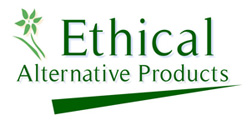Protective effect of alpha-lipoic acid against chloroquine-induced hepatotoxicity in rats
Pari L, Murugavel P.
Department of Biochemistry, Faculty of Science, Annamalai University, Annamalai Nagar, Tamil Nadu 608 002, India. [email protected]
ral administration of a-lipoic acid, a metavitamin, was investigated for its possible hepatoprotective effect in Wistar rats against chloroquine-induced toxicity. Rats were treated orally with alpha-lipoic acid (10, 30 and 100 mg x kg(-1) day(-1)) for 7 days before a single oral administration of chloroquine (970 mg x kg(-1) day(-1)) and alpha-lipoic acid treatment was continued for three more days. The increased level of serum enzymes (aspartate transaminase, alanine transaminase and alkaline phosphatase), bilirubin, lipids and plasma thiobarbituric acid-reactive substances (TBARS) and hydroperoxides observed in rats treated with chloroquine were very much reduced in rats treated with alpha-lipoic acid plus chloroquine. A
significant decrease in plasma antioxidants such as reduced glutathione (GSH), vitamin C and vitamin E were observed in chloroquine-treated rats when compared with control rats. Administration of alpha-lipoic acid significantly improved the levels of plasma antioxidants GSH, vitamin C and vitamin E in chloroquine-treated rats. In the case of 100 mg x kg(-1) day(-1) the effect was highly significant compared with the other doses (10 and 30 mg x kg(-1) day(-1)). The results of the study
revealed that alpha-lipoic acid could offer protection against chloroquine-induced hepatotoxicity. alpha-Lipoic acid had a better protective effect when compared with silymarin, a reference drug. Copyright 2004 John Wiley & Sons, Ltd.

